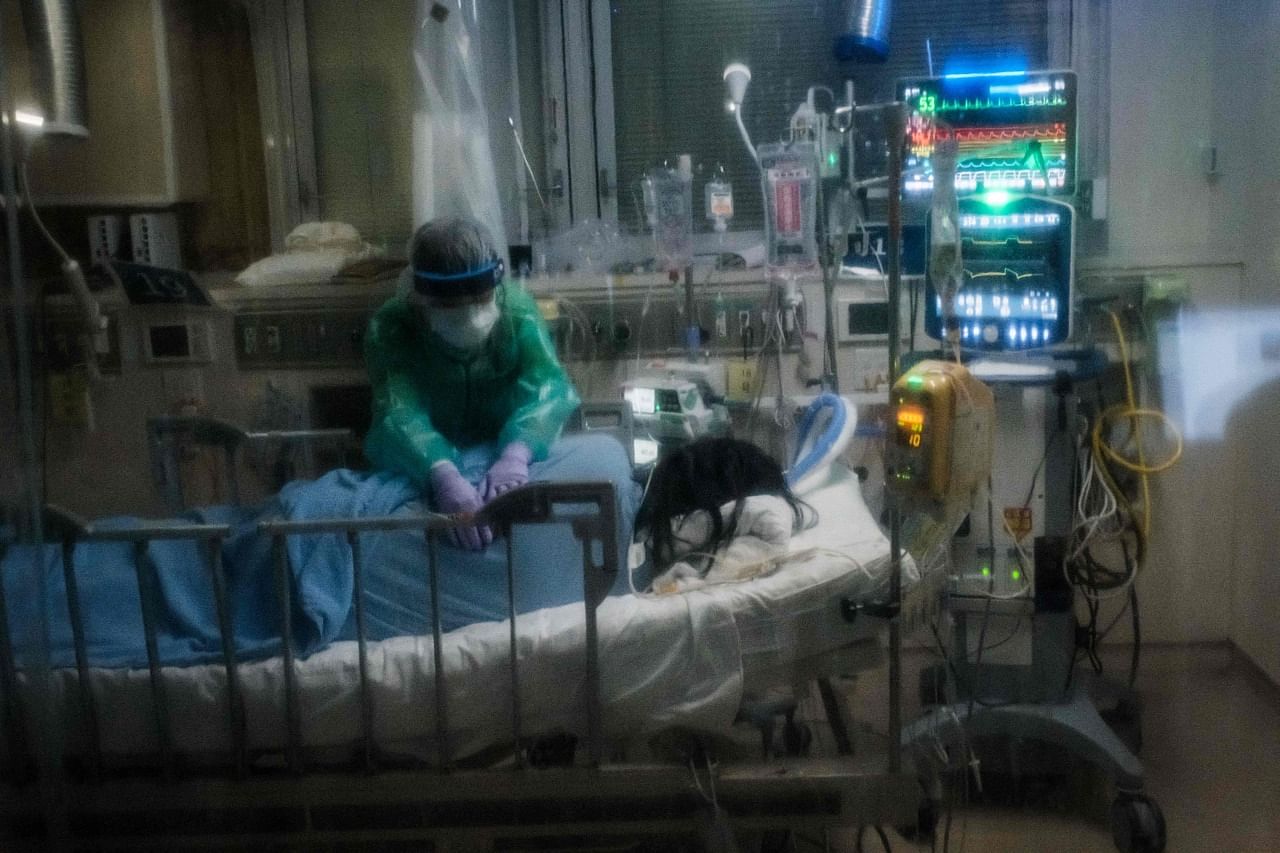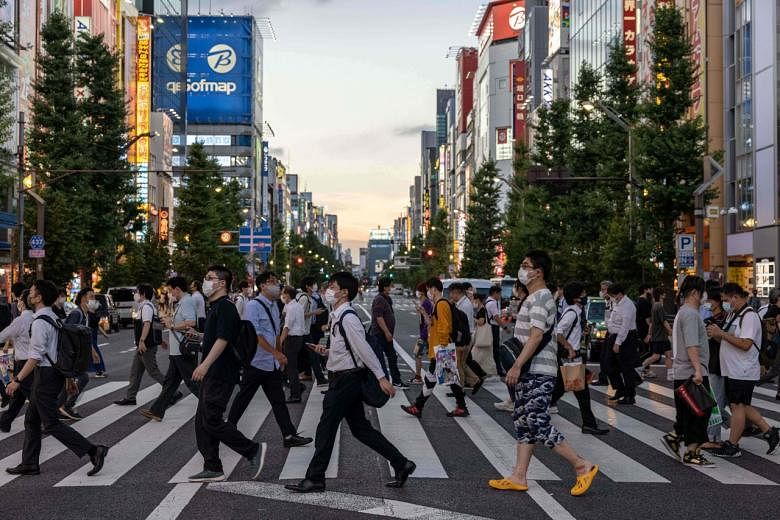TOKYO - Covid-19 emergency measures that now cover much of Japan will last for longer, with their expiry extended from next Sunday (Sept 12) to Sept 30, Prime Minister Yoshihide Suga said on Thursday.
This comes despite a drop in the number of daily cases, with 10,400 infections reported on Thursday, which is less than half the peak of 25,868 recorded just three weeks ago.
The emergency will be extended in 19 out of 21 prefectures, including Tokyo, Osaka, Hokkaido, Fukuoka and Okinawa.
Miyagi and Okayama will be "downgraded" to the lighter quasi-emergency, joining six other prefectures that will also have the status prolonged to Sept 30.
In doing so, Mr Suga spelt out his priorities behind the 18-day emergency extension that has been criticised by a public weary over the lengthy curbs.
This is best epitomised by Tokyo, whose population of 14 million have been under Covid-19 curbs for all but 28 days this year.
Yet, the press conference on Thursday at times felt valedictory for Mr Suga, following his shock announcement on Sept 3 that he would be stepping aside as prime minister.
He said that the 18-day extension was necessary to stabilise the situation enough so as to confidently roll out a road map to coexist with Covid-19.
The food and beverage industry has borne the brunt of emergency measures with 8pm dine-in curfews and an all-day alcohol service ban.
Under the road map, bars and restaurants can stay open and serve alcohol to people with proof of vaccinations or recent negative tests, even if under an emergency.
The beleaguered Go To Travel domestic tourism campaign, blamed for catalysing the third wave of infections and dead in the water since last December, will also likely be resuscitated.
Large-scale events will be allowed to resume, though in a blow on Thursday night, the Japan Football Association said it would quit hosting the Club World Cup over the uncertain Covid-19 situation.
In any case, Mr Suga said that to move forward, Japan will first need to raise its vaccination numbers, which are not abysmal by any measure.
Once regarded as a laggard, Japan only began vaccinations in February, but has already immunised about half of its residents, with close to 90 per cent of the elderly vaccinated.
Mr Suga said that 60 per cent of all residents will be vaccinated by this month, with another 10 per cent to have received their first dose, en route to his target of inoculating all those who are keen by November.
He noted how vaccines, as well as Covid-19 treatment cocktails, had helped to drastically reduce the number of deaths.
Between the fourth wave in April and the current fifth wave, the number of infections surged 2.9 times and the number of patients in severe condition, by 1.6 times. Yet, deaths fell by 2.5 times, Mr Suga said.
However, the extension was also necessary to ease the strain on the healthcare system, he added.

The number of patients in serious condition remains high, with 2,173 cases on Thursday, just shy of the peak of 2,223 people a week ago.
"We will use the certification system to pave the way for a normalisation of socio-economic activities such as dining out, events and travel, and over that time, we will do our utmost to support businesses, lives and livelihoods," he said.
But Mr Suga later acknowledged, in response to a question from The Straits Times, that he is in no position to guarantee that his successor will follow his road map.
"I think it is extremely important for the candidates to have debates and clearly state their ideas," he said.












